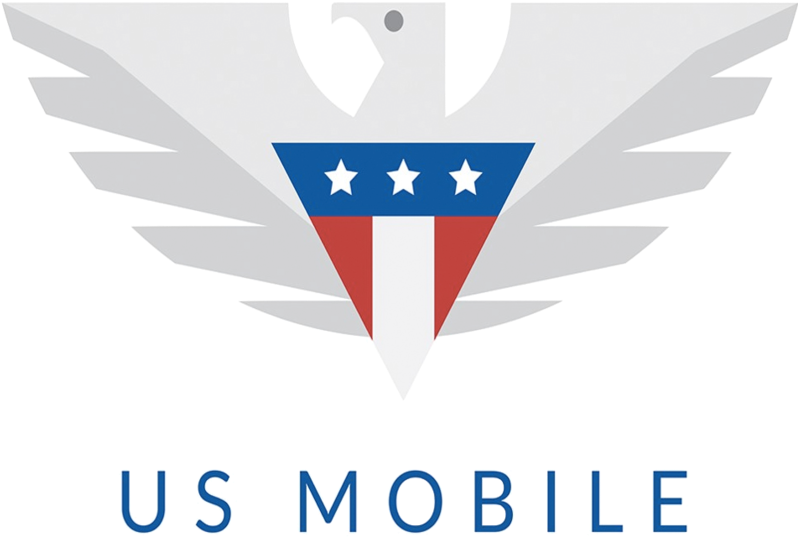 Best Overall Business Cell Phone PlanRingCentral RingEX Core | ||||
Price$30 per user ($20 if paying annually) | ||||
Talk, Text & DataUnlimited calling in U.S. & Canada; toll-free number with 100 minutes (can buy more); internal messaging and business SMS messaging. | ||||
Business FeaturesMobile app; auto attendant, conference calls, video meetings; can integrate with other business systems. | ||||
| | ||||
| | ||||
| |
Best Small Business Cell Phone Plans for 2026
RingCentral lots of features at a reasonable price for small businesses and accommodates growth. Freelancers or solo owners seeking low-cost service should consider TextNow's $0 plan.

Whether you’re a freelancer, a solopreneur, or building a small company, you need a way to handle your business communications. The best business cell phone plan for you will provide the features and coverage you want, at a per-user price you can afford — while also offering flexibility to scale up or down as you react to business needs.
We reviewed options to find the best small business cell phone plans covering a single line up through 50+ users. They range from simple voice-and-data plans to platforms offering a full menu of tools like call routing, toll-free numbers, audio and video conferencing, marketing, and analytics.
But before we get to the picks, let’s clarify the two types of business cell phone plans:
- Cellular phone plans, which may be prepaid or postpaid. Some carriers offer business-specific plans, but you can also simply choose a personal cell phone plan for one line or multiple lines.
- VoIP (Voice over Internet Protocol) systems, which are app-based. VoIP apps have the advantage of working on multiple platforms (phone, tablet, desktop).
Summary: Best Business Cell Phone Plans
Methodology: How to evaluate the best business cell phone plans
The best cell phone plan for business depends heavily on the type of business: Are you a solo entrepreneur or freelancer? Or looking to cover a small business with dozens or perhaps even 100+ employees? Whatever your needs, consider the following:
- Cost: It’s important to spend enough to get what you need, without overpaying or getting stuck with fluff you don’t need.
- Coverage: You want reliable coverage in the areas where your plan’s users will operate and where your customers are. In the case of an app-based service, you want to know historical downtime statistics to judge its reliability.
- Flexibility: Consider whether a plan can scale up — or down — with your needs. You don’t want to be hampered by user limits or stuck paying for more than is necessary. Also decide whether you want BYOD (bring your own device) capability so employees can use their own phones rather than you providing a new phone.
- Features: Do you need data coverage, video conferencing, or international calling and/or roaming? What about business-specific features like auto attendant for call routing and support for SMS texts for marketing?
- Ease of use and customer support: It’s important to get help when you need it, so your business can operate smoothly.
We considered each of these factors with its own weight to find the best business cell phone plans for a variety of needs.
Beginner’s guide to business cell phone plans
What is a business cell phone plan?
Any phone plan used primarily for business purposes is a business phone plan — but that covers a lot of territory.
The classic definition that pops to mind is a large system tailored to business with tools like auto attendant (answers and routes calls automatically), call forwarding, conferencing, marketing tools and analytics. But you might simply need a second phone number for your solo business, or a small plan covering a few employees — and those are business cell phone plans as well.
Types of business cell phone plans
As noted above, business phone plans may be cellular plans or use VoIP. Here’s a closer look at the differences:
Pros & cons of business plan types
With both types you either provide employees with a separate phone, or you ask them to use the business plan on their existing cell phone (called BYOD, or bring your own device). Employers often provide a monthly phone stipend or reimbursement to employees who use their own phones for business.
How does a business phone plan work?
Cell phone plans and VoIP plans designed for business emphasize:
- Features for communicating with customers, from simple features like business and toll-free numbers to complex call routing, virtual receptionist, call-center monitoring, marketing tools and analytics.
- Features for team communication, such as internal messaging, group messaging, conference calling or video meetings.
- Tools to make plan management easy, such as data pools, batch management of lines, a billing portal, 24/7 help desk, a dedicated account manager and more.
The Big 3 cell service providers (AT&T, T-Mobile, Verizon) all have a separate category of postpaid cell phone plans tailored to business needs. And many other companies compete in the VoIP market with feature-heavy plans that can support a few to hundreds or even thousands of employees across multiple locations.
But if you just need one or a few lines, without a ton of features, you can simply select a cell phone plan that suits your needs. Many cheap cell phone plans have multi-line options, although they may be labeled “family plans.” (You'll find the cheapest choices are MVNO phone plans from companies that lease space on the major carriers' networks.) You can also pair a multi-line phone plan with a texting app that supports marketing messages or group texting to customers.
How to select a business cell phone plan
1. List your needs
Start by narrowing down what you need, because that will limit the pool of candidates to consider.
How many lines: How many users do you need to cover? Think about whether you intend to grow your business and how soon, so you don’t choose something you’ll outgrow quickly.
Data needs: You’ll need mobile data if you want more than voice and simple SMS texting, or if you can’t always be on Wi-Fi. Think about how much data each user will need and whether you want the ability to vary data levels by line or to economize with data pooling among several users.
Devices: Decide if you and your team will use personal cell phones or you will provide a separate phone for business use.
- Personal cell phones: Choose between a VoIP plan where users access an app on their devices, or a bring your own device (BYOD) business plan. BYOD plans require the devices to be unlocked and compatible with their network. If a user doesn’t have a dual SIM phone that can accommodate two different plans, they’d need to ditch their personal plan in favor of the business one.
- Separate business phones: If you want separate devices for business use, check whether providers offer device financing deals.
Features: Decide whether you want simple calling and texting or need business-specific features — and which ones.
Common business phone plan features
- Phone numbers: If you simply want a second number to keep business use separate from personal, a straightforward cell phone plan will work. But if you need multiple business numbers, toll-free numbers, easy-to-remember vanity numbers, or individual extensions and departmental numbers, you may need to step up to a tailored business plan.
- Auto attendant: If you need calls to be answered and routed automatically with menu options, look for an “auto-attendant” or “virtual receptionist” feature. Or, you could seek out a more-elaborate interactive voice response (IVR) system, which can walk callers through self-service tasks like payments, but you may have to pay to add that service on or choose a more-expensive plan to get it.
- Call handling: Call forwarding, call conferencing, caller ID, call queue management, and call recording can make sure you’re not missing important calls.
- Voicemail conversion: Many plans will convert an incoming voicemail message to an email or text. That’s useful if you are often away from your computer and want an easy way to manage messages. If you have several people handling incoming messages, you can also look for a unified inbox that feeds messages in a single queue anyone can pick up.
- Team communication tools: Do you need instant messaging, group chat, or video conferencing?
- International coverage: If you have business in other countries, look for free or low-cost calling as a feature. Even if your business area simply borders Canada or Mexico, be sure you have coverage in those countries just in case.
- Business texting: If you want to use SMS messages for automated replies, scheduling and appointment reminders, or marketing to your customer base, look for plans that offer enough texts per month to cover your needs. A dedicated business phone platform will have tools to help you set these up and make sure you’re complying with communications laws and regulations.
- Security features: Dedicated business plans will offer greater security than consumer cell plans, for example by including mobile VPN, call and message encryption, and video conference encryption.
- Integrations: Business-oriented VoIP plans often can interconnect with systems like customer relationship management (CRM) software, Google or Microsoft Office, Slack, etc.
2. Set your budget
Consider not only what you can afford now, but also whether and how soon you may need more lines or features. You don’t want to pay too much for extras before you need them — but you also don’t want to be locked into a plan that can’t grow as you need to or isn’t cost-effective when you add more lines. If you're a freelancer, solopreneur, or need few lines, an MVNO phone plan could fit your needs at a low cost.
3. Check coverage and reliability
As with personal cell phone plans, a great deal isn’t really a deal if coverage is spotty where you, your employees and your customers are. For traditional cellular plans, you can check the FCC coverage map.
With VoIP business-oriented services, look or ask for statistics on average annual downtime. Ask whether the plan you’re considering offers a 24/7 staffed helpline and quality-of-service alerts so you’re aware of problems as they happen.
4. Research and compare plans
Compare the per-user cost to assess plans, and factor in hidden costs like ease of administration. Can you easily add and delete lines in response to changing business needs? Is there a streamlined billing portal? Do you have to lock into a contract for a year or more?
Depending on your business needs and plans, you might decide to start small and trade up in cost and complexity later.
How much should a business phone plan cost?
The average cost of a business phone plan overall will vary widely depending on the number of users, the type of plan and how many features it offers. Use cost per line or per user to compare choices.
- You can pay as low as $0-$5 per line with a plan from TextNow, Tello or similar carrier that offers consumer cell plans. Keep in mind that MVNO phone plans typically offer the best prices.
- VoIP systems start at $20-$30 per line, depending on number of users and monthly or annual billing.
- Multi-line cell plans can range up to $40-$50 or more per line, and ramp up if you’re adding international coverage, internet, etc. There are choices from consumer cell plans as well as business-specific offerings from the main carriers.
What's the cheapest way to have a business phone? Can I get a free business phone plan?
If you’re looking to simply have a separate number for business, you can add a free second number with TextNow or Google Voice. But if you need communications for a small team, look at multi-line cell phone plans and compare them to VoIP calling platforms.












